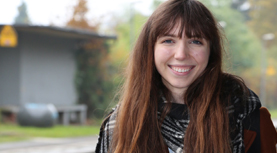Tine Heyse
President of Climate Alliance, Mayor for Environment, Climate, Energy and North-South, City of Ghent (BE)
“All climate policy should be social by default. Climate policy should not widen the gap between rich and poor. But what I also learned at the COP is that a weak climate policy is the least social of all because it is precisely the most vulnerable who will feel the consequences of runaway global warming.
A second lesson: ambitious climate policy requires an agricultural transition. While many cities and towns realise this, the topic remained underexposed at the negotiating table. With a third of all greenhouse gas emissions linked to food and agriculture, it is clear that we must focus on local, healthy, plant-based food. A focus on local food production also contributes directly to rainforest protection and the strengthening of the territorial rights of indigenous peoples, whose rainforests are threatened by oil extraction and agribusiness. Their testimonies were haunting.
Ambitious cities are much needed. They must show the way, identify barriers and ‘pull the cart’.



